Himalayan chronicle 2.0
It is the old road, but due to the increased traffic the (digital) emergency lane is used too. From now on, expedition teams heading for Nepal can register with the Himalayan Database, the high mountaineering chronicle founded by the legendary Elizabeth Hawley, also online before setting off, for example via Facebook. “We will continue to meet as many teams in Kathmandu as we can. However, it has become almost impossible in the last few years to interview everyone personally,” Billi Bierling explains the new procedure.
![]() read more
read more
Special expedition training
What a high-caliber training group! The Swiss Ueli Steck, the Nepalese Tenji Sherpa, the German David Goettler and the Italian Hervé Barmasse have been preparing themselves for their expeditions in spring in the village of Chukhung in the Everest region for ten days. Steck and Tenji Sherpa plan to traverse Mount Everest and Lhotse. No one has yet managed to do this without bottled oxygen. Goettler and Barmasse want to open a new route via the Shishapangma South Face in Tibet. In the course of the training, mountain running was at the focus. “I ran three times from Chukhung (4,730 meters) to Island Peak (6,180 meters),” writes Ueli. He had climbed and run a total of about 12,000 vertical meters over a distance of around 150 kilometers. “My body and my soul feel great,” says Steck. “I really enjoy being here in Nepal with such good friends. Just climb and run and nothing else.”
![]() read more
read more
Everest winter pioneer Wielicki: “Acclimatization is the key”
Krzysztof Wielicki is skeptical. “I think they can have a problem because they only slept in Camp 3 and not at 8,000 meters,” answers the Pole when I meet him at the trade fair ISPO in Munich and enquire him about the chances of the Basque climber Alex Txikon on Mount Everest. Txikon, who wants to scale the highest mountain of the world this winter without bottled oxygen, is currently waiting in Everest Base Camp to set off for his first summit attempt. “In my opinion, you should have slept at the South Col, if you want to push to the summit,” says Wielicki. “I wish him good luck, I hope that nothing happens. It’s most important that they’ll come back safely. It doesn’t matter if they climb to the summit or not.”
![]() read more
read more
Revol abandons winter expedition on Manaslu
And again snow wins. French climber Elisabeth Revol and her companion Ludovic Giambiasi have abandoned their winter expedition at Manaslu. This is reported by the Kathmandu-based newspaper “The Himalayan Times”. Heavy snowfall and strong winds in the high camp forced Elisabeth Revol to give up, Rishi Bhandari, head of the Nepalese expedition operator Satori Adventures, told the newspaper. The French team has already broken off their base camp and descended to the village of Samagaon. According to Bhandari, Revol had reached an altitude of 7,300 meters at Manaslu and had planned a summit attempt for Tuesday.
![]() read more
read more
Fiennes stopped on Aconcagua by his back
Is he really getting old after all? Sir Ranulph Fiennes has back trouble. Britain’s best-known adventurer had to be flown off from Aconcagua by a rescue helicopter at the beginning of the week. On the highest mountain of South America, the 72-year-old suffered from so bad back pain that he could not continue his ascent to the highest point on 6,962 meters. “I was within just a few hours of the summit but problems with my back meant I couldn’t continue,” Fiennes said. “I’m very frustrated, but I’ve learnt that at my age you can’t ignore any pain.”
![]() read more
read more
Liaison officer dies of high altitude sickness
Death on the Everest winter expedition: However, none of the climbers died but a government official. According to the Kathmandu-based newspaper “The Himalayan Times” the liaison officer, who was to accompany the winter expedition of the Basque Alex Txikon on behalf of the Tourism Ministry, died of high altitude sickness. The man passed away on the flight from Dukla (4,600 meters high) to Lukla (2860 meters) where he was to be treated in the hospital. The Spaniards Alex Txikon and Carlos Rubio want to climb Mount Everest without bottled oxygen this winter. The team has meanwhile – as reported – pitched up Camp 1 at 6,050 meters above the Khumbu Icefall.
![]() read more
read more
Hard winter work on Everest and Manaslu
Winter expeditions are not for wimps. “Today we have climbed up to 6,050 meters to build Camp 1”, the Basque Alex Txikon wrote in his blog from Everest on the weekend. “At the moment, we have less than minus 30 degrees Celsius.” After all, the team of eleven – Alex, his Spanish countryman Carlos Rubio and nine Sherpas, including two “Icefall doctors” experienced in dealing with the dangerous Khumbu Icefall – are quicker than expected. At the beginning of last week, Txikon had assumed that it would take four weeks to reach Camp 2 at 6,400 meters.
![]() read more
read more
China fuels the price spiral – and invests
Climbing on an eight-thousander in Tibet is getting more expensive, not only on Mount Everest. According to documents available to me, the Chinese Mountaineering Association (CMA) has significantly increased the prices for the climbing permits on Everest, Cho Oyu and Shishapangma, on average by more than 30 percent. Since the beginning of the year, the CMA claims 9,950 US dollars per mountaineer for the climb of the highest mountain on earth in case of four or more team members. So far the Everest Permit cost about 7,000 dollars per head. 7,400 dollars are now due for Cho Oyu, 7,150 dollar for climbing Shishapangma from the north side and 7,650 dollars for an ascent from the south side of the mountain. For smaller teams of up to three, the permit costs are even in a five-digit range: 19,500 dollars per person on Everest, 12,600 dollars each on Cho Oyu and Shishapangma.
![]() read more
read more
With Sherpa women’s power to the top of Kangchenjunga
The trio wants the triple. After having climbed Mount Everest and K 2, Maya Sherpa, Pasang Lhamu Sherpa Akita and Dawa Yangzum Sherpa plan to scale next spring also the third-highest mountain in the world, the 8,586-meter-high Kangchenjunga in the east of Nepal. Via the normal route, with bottled oxygen. They climbed Everest still separately – Maya for the first time in 2006, Pasang Lhamu in 2007 and Dawa Yangzum in 2012 – but K 2 in Pakistan in 2014 for the first time together as a team. As early as in 2015 the trio wanted to climb Kangchenjunga. However, at that time the expedition did not come about for financial reasons. This time, too, there is still money left, Maya Sherpa, who is to lead the first Nepalese women’s expedition to Kangchenjunga, writes to me. The Trekking Agencies’ Association of Nepal (TAAN) has announced to provide financial support as well as Tashi Lakpa Sherpa, managing director of the expedition operator Seven Summit Treks, says Maya Sherpa. The Nepal Mountaineering Association (NMA) has not yet decided whether it will also participate in the costs. In addition, the three Sherpani try to get a free permit for their expedition by the government.
![]() read more
read more
Txikon and Co. reach Everest BC
Ready to go. “We are already at the Base Camp,” Alex Txikon writes on Twitter from the Nepalese south side of Mount Everest. The Basque climber and his companions have pitched their tents in the 5360-meter-high Base Camp at the foot of the Khumbu Icefall. For one week, the team had trekked from Lukla via the Khumbu region to BC. Txikon reported on dry but cold winter weather.
![]() read more
read more
Winter attempt on Manaslu
And another winter expedition. After it had looked for a long time as if the eight-thousanders would stay in winter sleep this time, now at least two of the highest mountains in the world are visited in the cold season. As reported, the two Spaniards Alex Txikon and Carlos Rubio will try to climb Mount Everest without bottled oxygen. They are expected in Base Camp shortly after the turn of the year. The Frenchwoman Elisabeth Revol has already pitched up her tents at the foot of the 8,163-meter-high Manaslu in Nepal.
![]() read more
read more
Txikon wants to climb Everest in winter
I was probably too hasty. One and a half weeks ago I had prophesied a quiet winter time on the highest mountains in the world. Now there will be a spectacular expedition. The Basque Alex Txikon wants to climb Mount Everest in winter, without the use of bottled oxygen. This is consistently reported by Spanish media. The 35-year-old will be accompanied by the internationally still relatively unknown 28-year-old Spanish climber Carlos Rubio, who has hitherto made more headlines as an extreme skier. In addition, the two mountaineers Aitor Barez and Pablo Magister will belong to the team as cameramen.
![]() read more
read more
Auer and Bluemel succeed first ascent on a 7000er in Nepal
“It was one of those expeditions where it all fit together perfectly,” says Hansjoerg Auer. The 31-year-old Austrian and his countryman Alex Bluemel succeeded the first ascent of the North Face of the 7005-meter-high Gimmigela East, in Alpine style, means without ropes and high camps, without Sherpa support and without bottled oxygen. The sub-peak of Gimmigela Chuli (7350 m) is located in the far east of Nepal, on the border with India, quite hidden in the area around the eight-thousander Kangchenjunga, the third-highest mountain on earth.
![]() read more
read more
Winter low tide on highest mountains
Nanga Parbat falls back into hibernation. After the 8125-meter-high mountain in Pakistan was bustling over the past years with expeditions who tried to climb it for the first time in winter, it now looks as if the “naked mountain” remains a lonely one in the coming months. This winter even the Polish climber Tomasz Mackiewicz will not change his living room – as he did in the last six years – with a cold tent on Nanga Parbat.
![]() read more
read more
Bad mountain management in Nepal
You can’t just set off. If you want to climb am mountain in Nepal you should check the rules beforehand, otherwise you might experience a nasty surprise. Like the three Spanish climbers, who recently opened new routes on two six-thousanders. They were under way without permits, now the authorities in Kathmandu are investigating the case. They are facing a stiff fine and a 10-year-ban from mountaineering in Nepal. My compassion for the Spaniards is limited. I find their justification (“We are not pirates, we have left our money in Nepal at all”) flimsy. If you follow this argumentation, you could bilk any national park fee worldwide. Nonetheless there have been some construction sites the Nepalese “mountain management” for a long time, which are allegedly worked on but whose status does not change.
![]() read more
read more



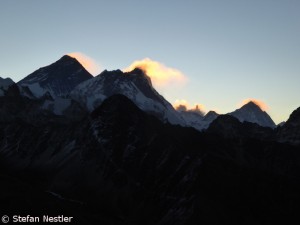

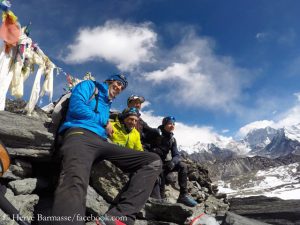
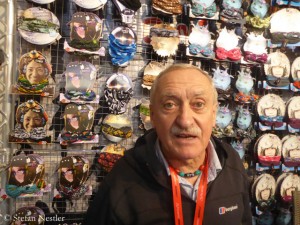
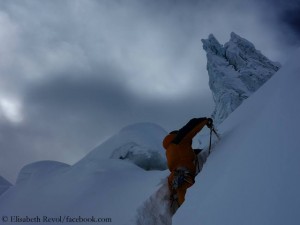
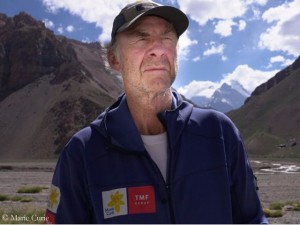
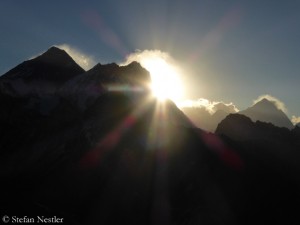
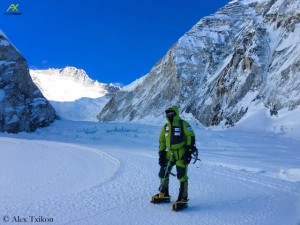
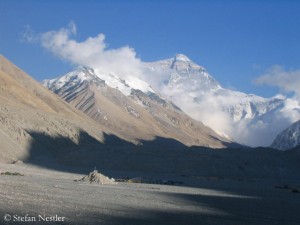

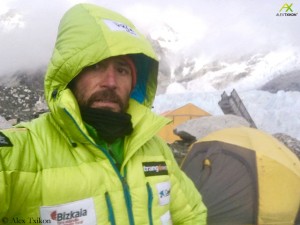
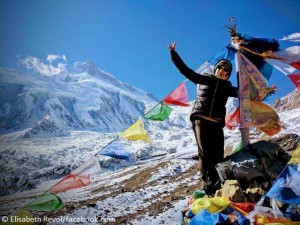
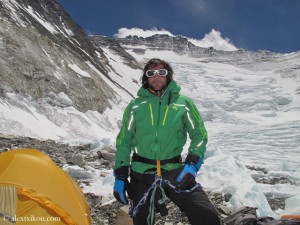
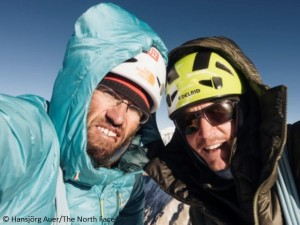
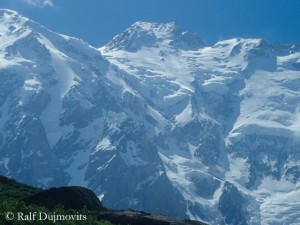
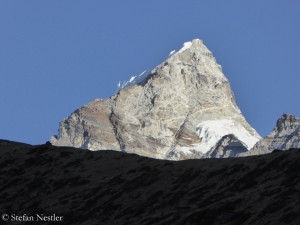




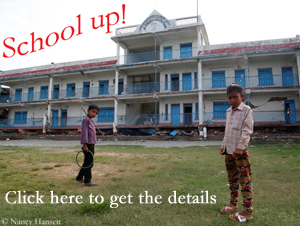
Feedback